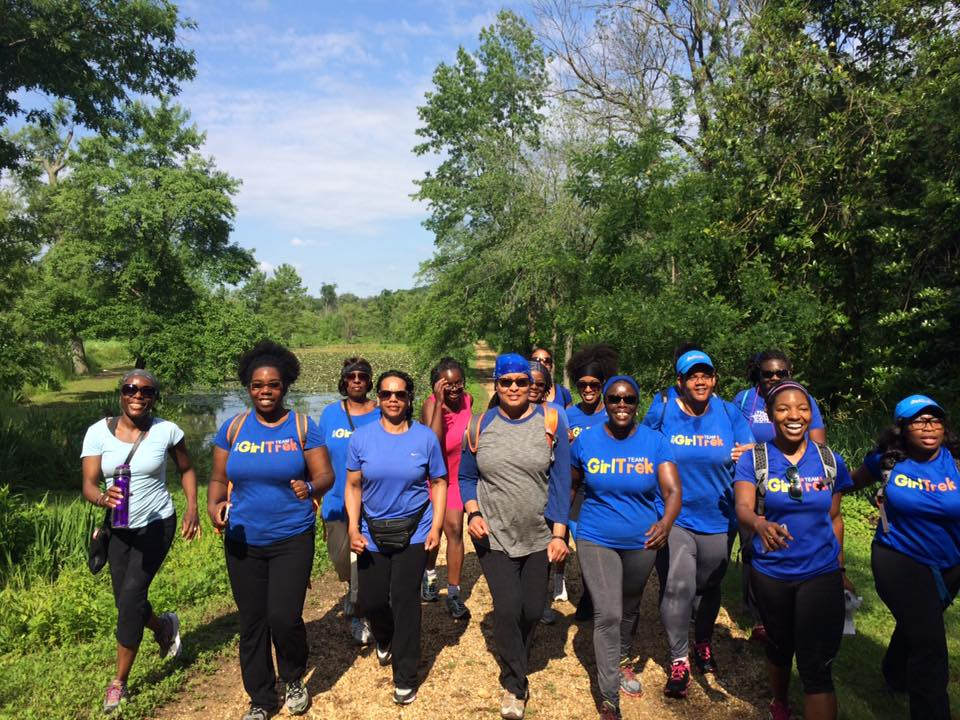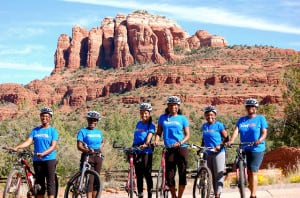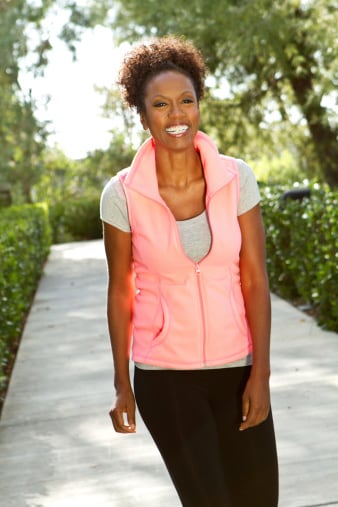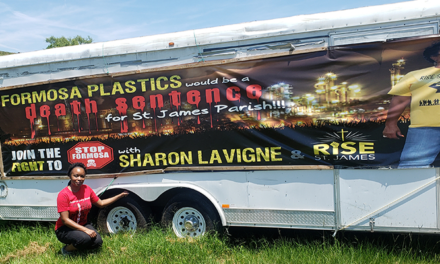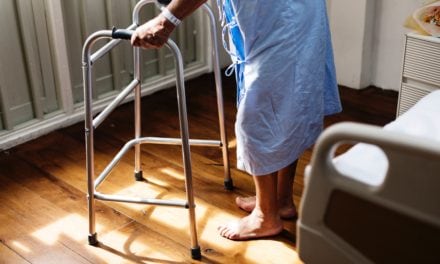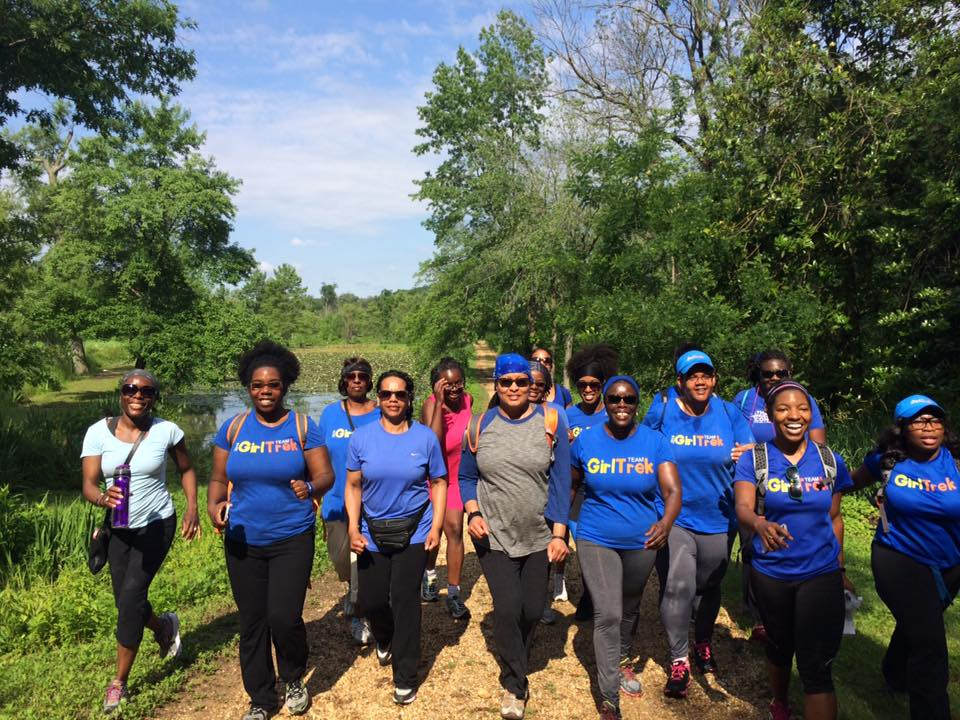
GirlTrek kicks off its official 10-week walking season on April 2 with a weekend of activities hosted all around the country. In addition to walking and running, they also ride bikes, as shown by the group in Sedona, Ariz., below right. (Photos: GirlTrek)
With so many health disparities affecting black women and girls, as opposed to their white counterparts, it’s hard to know where to start to bridge the gap. But two women decided to take matters in their own hands and just start walking. In the process, they got nearly 50,000 other women to put on their walking shoes too.
“We founded GirlTrek because black women in the United States are facing an unprecedented health crisis, 82 percent of us are over a healthy body weight,” says Vanessa Garrison, co-founder of GirlTrek. “Black women are dying from heart disease, diabetes, stroke, hypertension. It’s a crisis of epic proportions and yet nobody is talking about it.”
Morgan Dixon, the other co-founder, remembers teaching in Atlanta, with Teach for America and hearing statistics that half of her black girl students were likely to develop diabetes. “I’m looking at a classroom full of black girls and I’m thinking ‘What the heck are we doing about it?’’’ Dixon recalls.
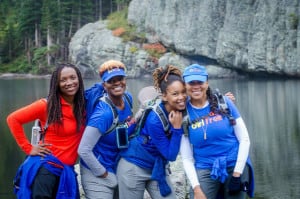 They decided to do more than complain about it. Each started walking and invited other black women and girls in their neighborhoods to join them. In just two years, the simple act of walking grew into a movement of 35,000 neighborhood walkers across the country. As of March, “that number grew to 50,000 black women who have made a personal commitment to live their healthiest most fulfilled lives,” Garrison says.
They decided to do more than complain about it. Each started walking and invited other black women and girls in their neighborhoods to join them. In just two years, the simple act of walking grew into a movement of 35,000 neighborhood walkers across the country. As of March, “that number grew to 50,000 black women who have made a personal commitment to live their healthiest most fulfilled lives,” Garrison says.
“Our goal is to get to one million GirlTrekkers by 2018,” says Dixon, “and we believe that if we get one million black women out walking in their neighborhoods that they will become the engine of ingenuity and innovation that we need to have a public health revolution in our country.”
While the movement started with a few steps, the founders say that GirlTrek is grounded on a deep analysis of the root causes behind the health crisis among black women. Where our high rates of cardiovascular disease, diabetes, being overweight or obese, and experiencing stress and depression were often blamed on laziness, individual choice or cultural deficit, Dixon and Garrison saw the structural, physical and psychological effects of centuries of racial, class and gender oppression.
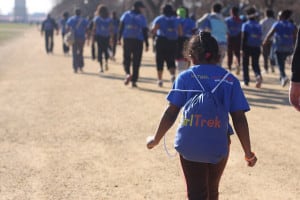 “We’ve been working literally as the laborers in this country for almost 400 years,” says Garrison, “we have been socialized to put the needs of other people before ourselves.”
“We’ve been working literally as the laborers in this country for almost 400 years,” says Garrison, “we have been socialized to put the needs of other people before ourselves.”
By helping black women across the country understand the connection between historical oppression, structural barriers, trauma, low self-worth and health, GirlTrek has been able to empower black women of all ages to start reversing the process by recognizing that they have value.
In the vein of #BlackGirlMagic, the Girltrekkers like to think of what they are doing as #BlackGirlHealing. Earlier this month, they primed the pump for the kickoff of their official 10-week walking season that begins April 2, with a weekend of activities hosted all around the country.
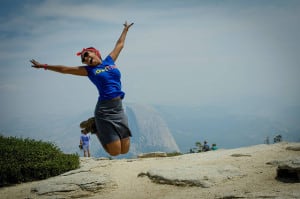 Film producer Tonya Lewis Lee, activist Michaela Angela Davia and the 18th Surgeon General of the United States, Regina Benjamin, M.D., and thousands of sisters, mothers, wives, girlfriends and friends broke bread at house parties on March 10 to lend their voices and solutions to the health crisis facing black women and girls. They also unveiled a powerful new mini documentary on the power of black women when they put on their walking shoes to take back their health and their communities. (See below.)
Film producer Tonya Lewis Lee, activist Michaela Angela Davia and the 18th Surgeon General of the United States, Regina Benjamin, M.D., and thousands of sisters, mothers, wives, girlfriends and friends broke bread at house parties on March 10 to lend their voices and solutions to the health crisis facing black women and girls. They also unveiled a powerful new mini documentary on the power of black women when they put on their walking shoes to take back their health and their communities. (See below.)
GirlTrekker Sybil Outing, from Newark, N.J., knows the power of walking in sisterhood. When she talks about her local GirlTrek organizer she says, “this sister right here saved my life.” She says the movement is about so much more than weight loss.
“Many people think that I don’t need help because I’m skinny, but I was wasting away. I had nothing left. I was so depressed, in so much pain everyday. I didn’t love myself. I wasn’t going to make it. But I’m here and now I love myself. I haven’t missed a day of walking since September.” She proudly says that GirlTrek saved her.”
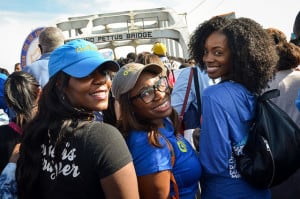 Dixon and Garrison see black women in history as their guiding lights in this GirltTrek movement. “There are women throughout our history who have used walking as a mechanism of change,” Dixon says.
Dixon and Garrison see black women in history as their guiding lights in this GirltTrek movement. “There are women throughout our history who have used walking as a mechanism of change,” Dixon says.
“Starting from Harriet Tubman who literally, on her two feet, walked herself to freedom across the Mason Dixon line; to the women in Montgomery who walked and boycotted the busses in order to make a powerful statement,” Garrison says. “There’s so much power in the culture of black people. Let’s believe it, let’s come together and let’s make solutions.”
For more information on the GirlTrek group and how to join the new walking season, go to www.girltrek.org.
Andrea King Collier is an independent journalist in Lansing, Mich., who writes about health and medicine, health policy and health disparities.

